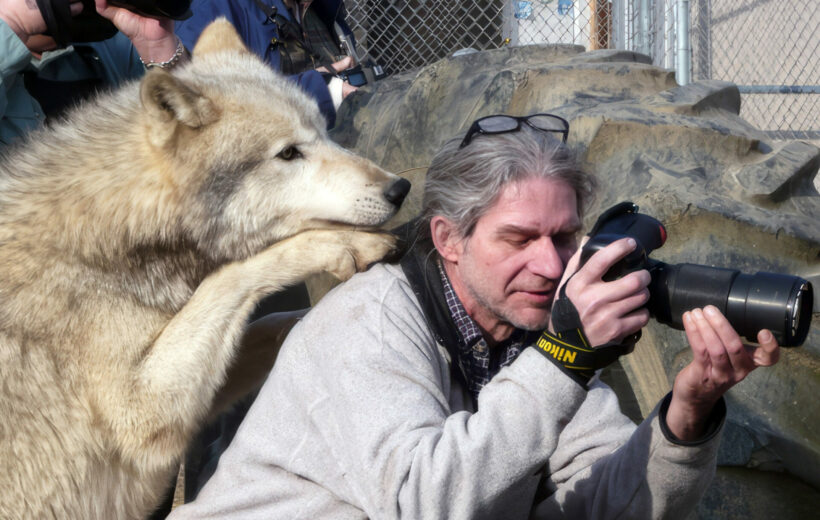The excellent photographs that Jeff McCurry has taken of nature and its living beings are extraordinary and his existence is full of that wonderful contact with Mother Earth, showing us in all its splendour, the colourfulness of life. His sensitivity and empathy towards other species made him have a special relationship with a male gorilla called Harambe whom he met at the Cincinnati Zoo (USA). He spent many hours in front of him, talking to each other just with his look and gestures. They understood each other, they understood each other and Harambe posed in front of him until he decided that he had to rest and with a tender look, he got up and went to its interior where he knew he had to spend the night.
I do not know exactly how I found his photographic work on the net. But seeing the photographs he took and uploaded to his Facebook, I didn’t hesitate to contact him, in the vague hope of requesting if I could use some of his photographs for different campaigns in the Great Ape Project.
To my surprise, he replied shortly afterwards that “I could certainly use his images”. This act of altruistic detachment touched my heart. From that moment on we maintained an ongoing relationship and I used his images in articles, on the web, and even in different books and in an exhibition in the Valencia Museum, on the rights of the great apes. In my house, I have several of his images of gorillas, bonobos and an orangutan adorning the walls like a museum, like a window into the world of our evolutionary brothers and sisters. Of course, in the face of this great generosity that very few artists have in their hearts, he became part of the Great Ape Project and the fight we maintain in defence of their basic rights and against the business of their captivity.
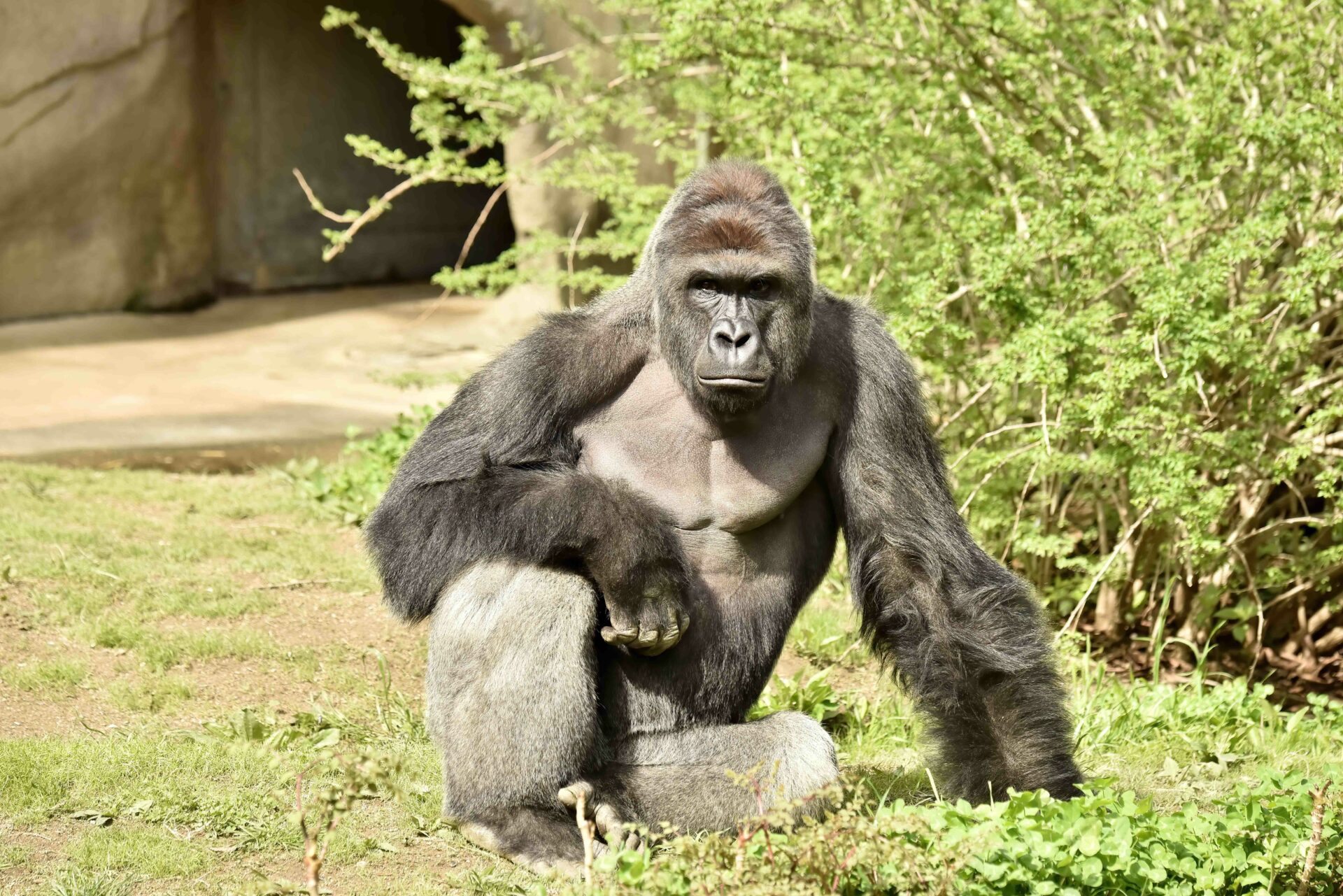 Photo: Jeff McCurry
Photo: Jeff McCurry
In May 2016, a serious incident occurred when a child fell into the gorilla enclosure due to parental distraction. Harambe did not hesitate to jump into the pit and drag the child out of the enclosure. The zoo officials, fearing that he might do something, did not hesitate to order a shot to bring him down. And Harambe died without understanding why the humans had killed him if he only wanted to save the boy who had spilled out into the moat with water in his enclosure.
The media storm surrounding Harambe’s death quickly became one of the biggest news stories of the decade. The photographs that Jeff had taken went viral and memes were made about some of them that went around the world. Today, Harambe’s eyes and the human posture in which he sat looking at his friend have even been reproduced in a statue in his memory.
Many people did not understand why he was shot to death when what was clearly shown was that he wanted to protect the child. But zoo officials feared for the boy’s life and the lawsuits that would have ensued if he were injured. There was extensive media coverage and numerous street protests, which are still taking place today, on the anniversary of his death. Jeff’s photographs and his love for his murdered friend have been the main driving force behind Harambe’s lifelong remembrance, his story being made known to the world and being brought to the cinema screens in an exceptional film to be released at the end of September.
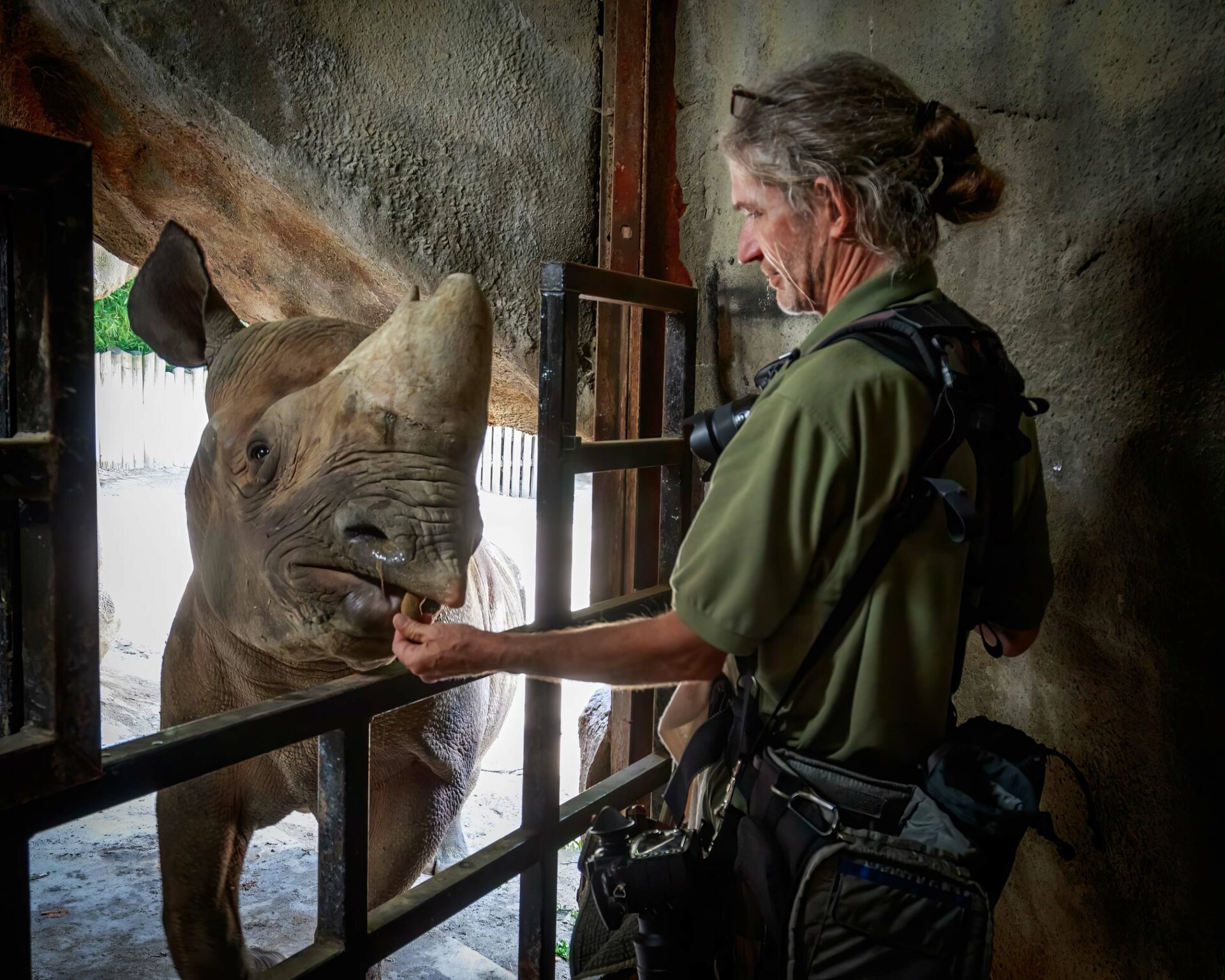 Photography: Jeff McCurry
Photography: Jeff McCurry
In tribute to Harambe and Jeff McCurry and for the depth of his words and heartfelt sentiments, he wanted to do an interview with him to make known his opinion regarding non-human hominids (great apes) and his desire to stop forever the exploitation and business that is being done with their captive lives.
I have seen the great friendship you had with Harambe. As you know, at the Great Ape Project we fight for the rights of the great apes and the protection of their habitat. In this sense, we sincerely thank you for allowing us to use your photographs for this purpose. What do you think about the captivity of the great apes? Isn’t being locked up taking away their culture and freedom?
I think keeping great apes in captivity/prison today is as wrong as keeping a human in prison for a parking ticket which no one would find acceptable. Technology has improved so much that today there is no legitimate reason to keep an ape in captivity so that we can study it, see it, protect it, etc. All the reasons for keeping them in cages are no longer true and the only reason left is because there is a huge business to use them as a product to get consumers to pay money to visit them. Their captivity is now a commercial business with the sole intention of making money and providing work for those who keep them captive. To continue to breed apes in captivity for our profitable business is barbaric.
I also believe that with each new generation, we are changing apes through selective breeding so that they are more accepting of living their lives in cages. Those who show their displeasure at being prisoners for life are not selected to be used in the breeding process. This is creating a damaged captive group that looks less and less like their wild brothers and sisters.
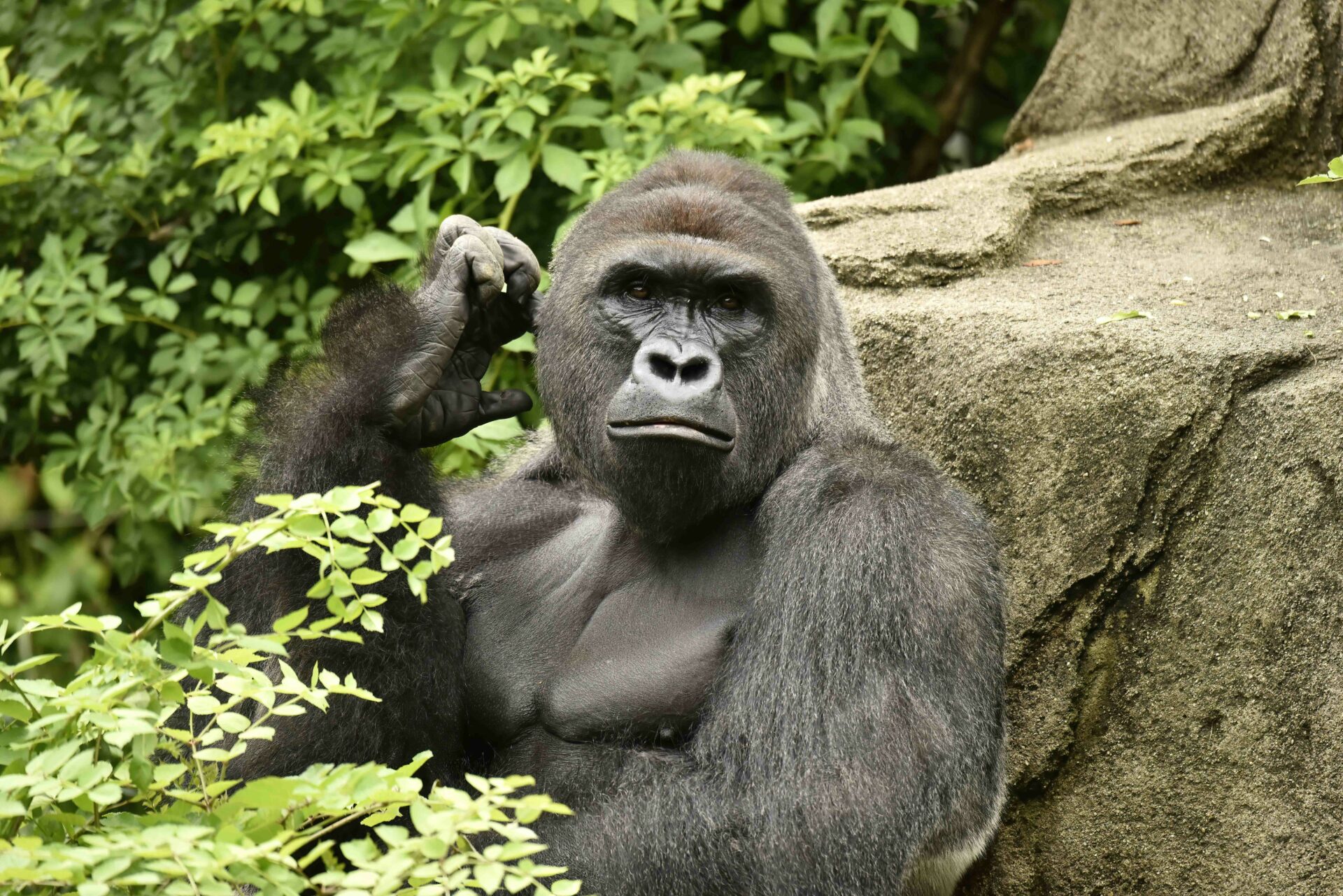 Photo: Jeff McCurry
Photo: Jeff McCurry
What do you think of the Great Apes Act we are trying to remove it in Spain, where we ask that great apes be taken to sanctuaries and prevent breeding as they are new lives in captivity?
I agree with your aim to move all great apes in captivity to sanctuaries and never breed them again. We should give the living ones the best life we can until the last one dies naturally and the captive industry is just a thing of the past.
We consider you a member of the Great Ape Project because of the great work you have contributed through the photographs you have taken. What do you think of our fight?
I am very honoured to be considered a member of the Great Ape Project and I am very happy to be associated with people who are willing to fight to protect their right to live as they lived for centuries before we decided to capture them for our commercial gain.
As you know, the Great Apes belong to our own family “Hominids”. They are special beings and we share the same common ancestor. One of our objectives is that they should be considered “non-human persons”. In fact, there are two court rulings in Argentina where an orangutan named Sandra and a chimpanzee Cecilia have been declared “non-human persons” ordering their immediate release from the zoos where they were held captive. What do you think about that?
I am very encouraged by the fight for apes to be considered “non-human persons” in the courts. I think this is the only way to achieve the goal of ending captive breeding because there are too many people who depend on the captive industry for their employment and income and it will only stop if the courts force them to.
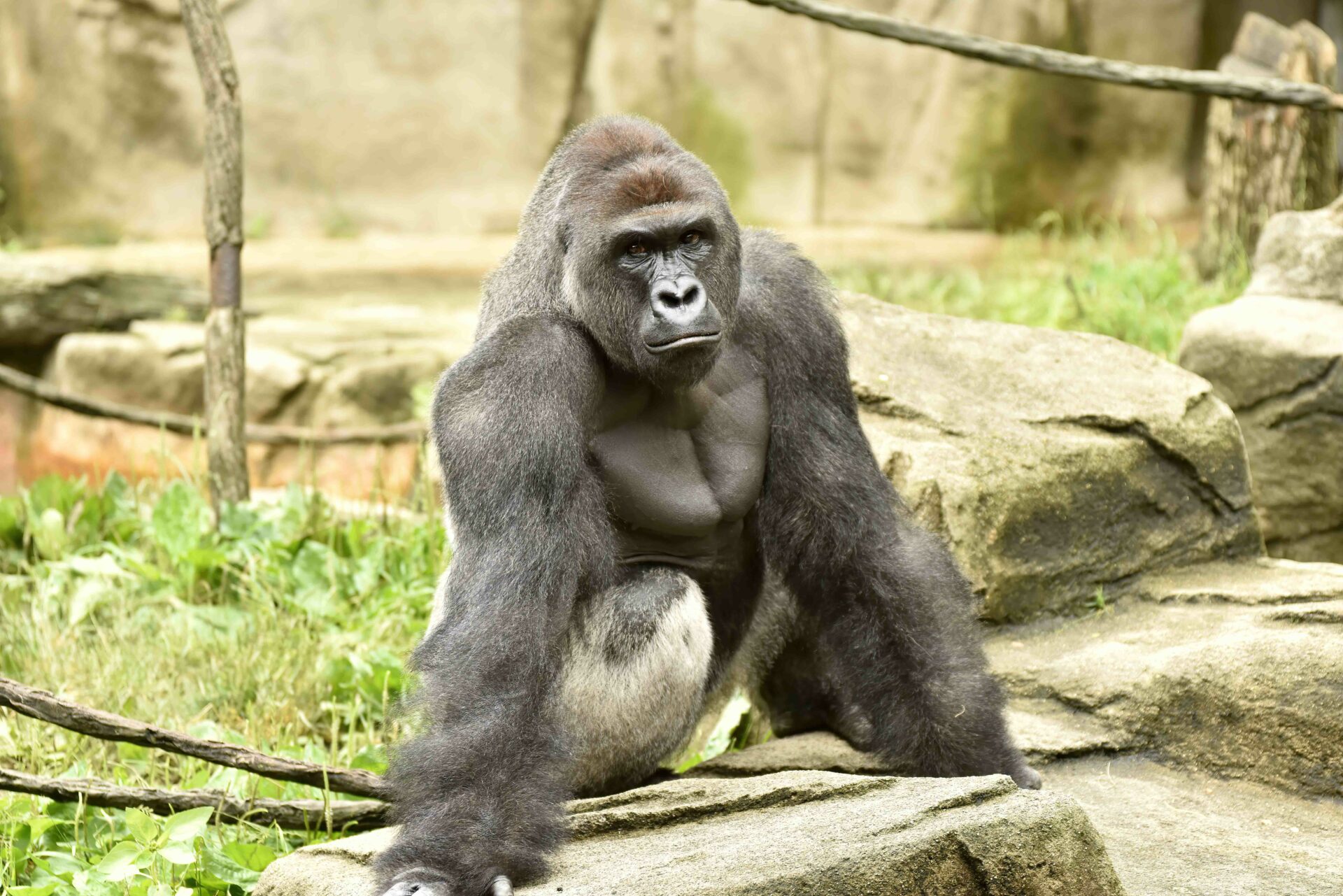 Photo: Jeff McCurry
Photo: Jeff McCurry
You are so generous that you don’t mind your photographs being used by our Organisation in defence of our goals for the basic rights of the great apes. How do you feel?
My joy comes from taking the photographs and everything after that feels like work and I don’t want another job ever again, I retired at 24 because a Drunk Driver hit me head on and severely damaged my body and the only good thing is that I will never have to get a job again. When people like you can use the photos for such a good cause, I am overwhelmed with pride and filled with great happiness.
Can you give a message from your experience for the basic rights of great apes to life, liberty and not to be physically or psychologically abused?
I have had 2 life experiences where others took away my ability to live my life as I wanted. I spent 2 years in a wheelchair after the drunk beat me and spent a year in federal prison for growing medical marijuana plants.
Through both experiences, what bothered me the most was that so many people told me how sorry they were for putting me through those terrible experiences believing it would help me deal better with my bad situation. On both occasions, it just made me angry that society was willing to sacrifice me instead of fixing the reasons why I was enduring those hardships.
With my personal life experiences understand how harmful it is to take a Great Ape and hold him prisoner against his will and how damaging it was to my physical and mental health even though I knew my condition would one day improve. To continue to purposefully breed great apes into a life of captivity knowing that they will never have the opportunity to live a normal life in the wild as they were created to live is unacceptable and a horrible stain on humans who will not stop because we can make money from their misery.
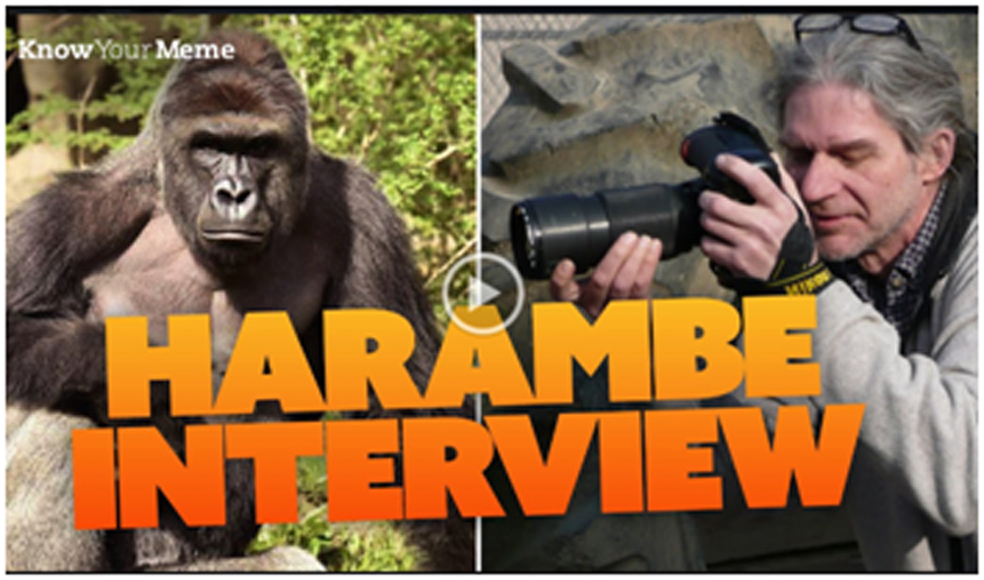
After the interview, Jeff, left me with a great message that hopefully will be fulfilled along with the efforts that from my humble self and the Great Ape Project, we are making in favour of their basic rights:
“I am very sure that Harambe’s horrible death greatly used the world’s opinion that it is time to hear from people like you who have been fighting to give the great apes the respect and dignity they deserve, to live a life free from being exploited by those who use them to enhance their commercial income. I am hopeful that the time is right and that most people will see that changing our treatment of the great apes is our duty as good citizens of planet earth. We can do it, what better legacy for Harambe that after he left us, the world decided that his brothers and sisters deserve to live their lives free in their habitat”.


